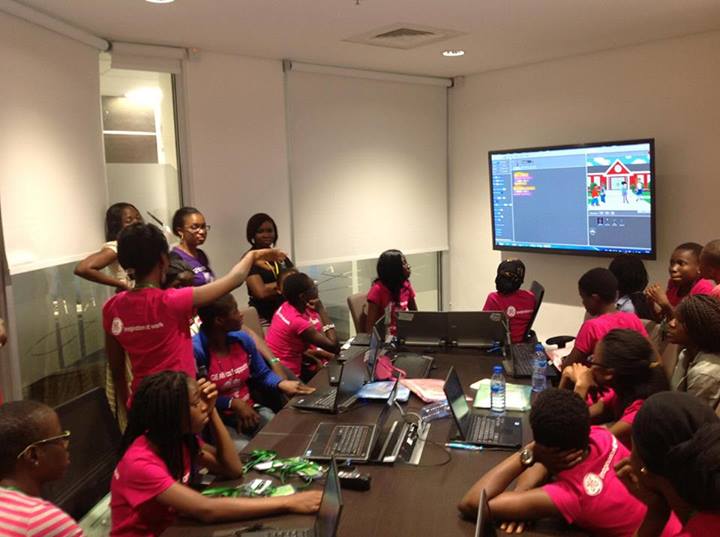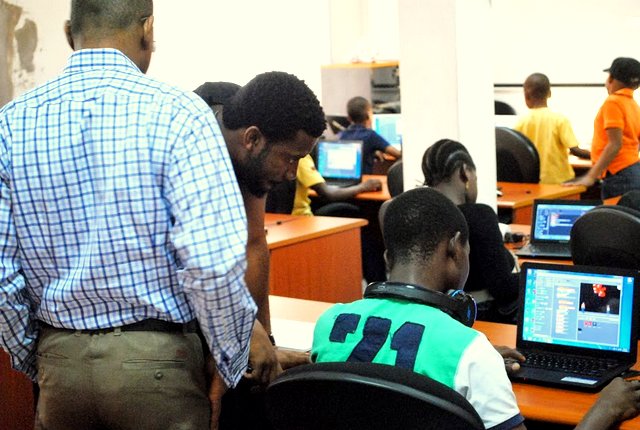Last week, Erik Hersman blogged about how they are getting kids started hacking hardware at the iHub. Really inspiring stuff.
Erik’s post got me thinking. As advances in science and technology usher the world into the next stages of human transcendence, it is hard to accept the reality that the shapers of Nigeria’s future are currently receiving mediocre education in schools that cannot afford the equipment and chemicals to do elementary science demonstrations like titration, not to mention computers or IT.
However, there are a number of initiatives, isolated, but nonetheless aimed at getting the next generation of Nigerians into technology, from their tender ages. I put the ones I could find together here. Take a look.
W.TEC girls technology camp
The Women’s Technology Empowerment Centre is a Nigerian non-governmental organization that works to empower young girls economically and socially by helping them acquire technology skills. W.TEC recently held its 6th Girls Technology Camp last August. And yes, they’ve been hosting these annual camp events for the past six years. Girls between the ages of 11 and 17 learn to create digital content, build websites and develop applications. W.TEC is a non-profit, and relies on donations from the public and corporate sponsors.
Audax Code School
On most days, Audax is a regular IT consulting company. But a few weeks ago, the company converted its facilities into a code school targeted at parents who want their kids to pick up basic IT and programming skills early on. For a 3-week duration, the enrolled children were taken through website building basics via HTML and CSS, and were taught game and mobile app development with elementary frameworks like Scratch and App Inventor.
The training isn’t free. However, Audax partners with organisations like Paradigm Initiative Nigeria, Mobile Monday and the Women’s Technology Empowerment Centre to provide scholarships that extend the benefit of the programme to other kids who ordinarily would be unable to participate.
CcHub Bot Club

High school students from around Sabo and Yaba visit the hub every week to learn robotics programming
The Co-Creation Hub has a program for kids that is uncannily like the Kids’ Hacker Camp that Erik described in his post. Only that the one at CcHub has been going on for the past two months. The CcHub Bot Club convenes twice a week with just under two dozen kids in attendance.
It started with Vanso donating a bunch of Lego Mindstorms. Then CcHub staff went around secondary schools in the area showing the teachers and kids how robots work and inviting them to sign up to a three month robotics programming training session. The sixteen kids that were eventually selected come in on Tuesdays and Thursdays for theory sessions with instructors and practical sessions where they get to work with the tools.
Exposure Robotics League
These guys have an interesting back to front way of teaching kids to use computers. They show them how to program robots in an intense five-week training session.
Exposure Robotics league is an MIT student founded group led by Obinna Ukwuani. Ukwuani experienced two years of Nigerian style education where children are typically forced to learn by rote before he left for the US. Now he and his team hope they can make a difference in the lives of Nigerian kids via world class robotics education that not only teaches programming and other related academic principles, but also encourages creativity and the imaginative application of the engineering principles the children learn in the classroom.
One thing though…the $2,800/N440,000 tuition fee puts exposure robotics league training out of most Nigerian children’s league. But like Audax, XRL works with big name corporates like Shell and Interswitch who foot the bill as part of their social responsibility efforts.
***
One is really glad to see these pockets of innovative intent targeted at children like the ones above, doing what they can, where they are. However, an important question to ask would be how these initiatives could be urgently scaled to to the point that they can becomes a real response to the dire state of Nigerian education, especially in STEM fields.
Perhaps there are people in a position to do something who are listening?





















